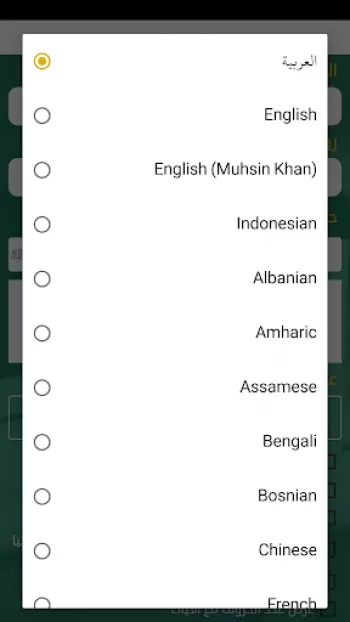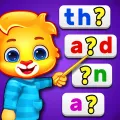Apps Home

Understanding the Need for Daily Quran Reading Habits
The journey towards incorporating Quran reading into your daily routine can often feel daunting for many believers. Yet, understanding the significance of this spiritual practice can provide a compelling motivation to persevere. Engaging with the Quran isn't merely about passive reading; it's an active encounter with divine wisdom, guidance, and solace. The Quran, as the ultimate source of divine instruction for Muslims, encompasses teachings that touch every aspect of life, offering solutions to life's eternal questions. Delving into the sacred text daily allows individuals to align their actions and thoughts with the teachings of Islam, promoting inner peace and wrapping day-to-day activities with righteousness. The act of reading, even when done incrementally, leads to profound understanding and reflection, as tiny fragments of God's word gradually reshape the reader's worldview. Moreover, recurring exposure to Quranic ayats on a daily basis instills a cognitive and spiritual discipline that acts as a fortress against harmful distractions and negativity. Thus, it becomes crucial to develop a structured approach to Quran reading, transforming what might initially feel like an imposing task into a fulfilling routine, rich with spiritual and emotional rewards. This habitual engagement also serves as a constant reminder of one's faith, nurturing a deeply personal connection with Allah. Recognizing the Quran as a living text, one starts to view everyday situations through the lens of its teachings, fostering a life that truly embodies Islamic principles. Notably, technological innovations have further facilitated Quran reading; applications like Nakhtem empower users to integrate Quran recitations into their mobile usage patterns effortlessly. By showing a verse each time the phone is unlocked, it seamlessly weaves Quranic interaction into day-to-day digital habits, making it almost second nature. This symbiotic relationship between technology and faith highlights the ingenious methods by which traditional practices can be retained and enhanced in modern contexts, ensuring that the Quran remains a pivotal force in shaping one's ethical framework and spiritual consciousness. Thus, cultivating a daily Quran reading habit is indispensable for those seeking to live a life that is reflective, grounded, and deeply in tune with Islamic virtues.
Strategies for Making Quran Reading Effortless and Consistent
Effortless daily Quran reading is not only about facilitating access but also about finding personalized strategies that can make the experience fulfilling and consistent. Starting small is a recommended approach for newcomers and seasoned readers alike. Setting achievable goals, such as reading a few verses a day, prevents the overwhelming feeling that often accompanies large commitments, while still progressively moving towards the goal of khatma. Time management plays a pivotal role here; utilizing pockets of time throughout the day, such as during commutes or breaks, can cumulatively cover significant ground over weeks and months. Additionally, associating Quran reading with specific daily activities or routines can reinforce it as a habit. For example, dedicating time after prayer or pairing Quran reading with tea in the evening can ritualize the practice, enhancing focus and reflection. Leveraging technology enriches this strategy significantly—applications designed for portable devices, like Nakhtem, ensure that Quranic verses are integrated into daily phone usage patterns. Each time the user checks their phone, they are presented with a verse to read and reflect upon; with this method, the barrier to accessing the Quran is virtually eliminated. To delve deeper, the app also offers features to listen to recitations from a choice of revered qaris like Mishary bin Rashid Al-Afasy or Abdul Basit Abdul Samad, allowing users to enrich their experience audibly. Furthermore, recording progress through app statistics provides the benefits of motivation and a tangible sense of accomplishment. This data-driven approach not only encourages continuity but also gives insights into reading patterns that can be adjusted for more productive engagement. The 'Later' feature addresses the need for flexibility by allowing users to postpone reading until a more convenient time, ensuring that the habit remains manageable without causing frustration. By strategically employing these practices, users can transform Quran reading from an intention into a sustainable, everyday reality.
The Role of Technology in Enhancing Daily Quran Engagement
In today's fast-paced digital age, technology has become an indispensable ally in enhancing and maintaining spiritual practices, including daily Quran reading. The integration of modern tools and applications offers unprecedented convenience, which can significantly bolster one's commitment to regular Quranic engagement. Nakhtem, for example, epitomizes how technology can serve religious inclinations by embedding Quran reading into routine smartphone use. This application taps into user behavior, presenting verses each time the device is unlocked, thus reminding users of spiritual duties amidst daily distractions. Such seamless incorporation not only eliminates the perceived burden of setting aside a separate time for Quran reading but also ensures continual interaction with the text throughout the day. Moreover, the app's features, such as selecting a preferred qari for audio recitation or embarking on a specific Surah, provide a personalized touch that respects individual preferences and enhances the reading experience. The auditory component is notably powerful—it transforms passive reading into an engaging multitextural experience, stimulating memory retention and deeper interpretation. Technological advancements also facilitate accessibility; users can engage with the Quran in diverse scenarios, whether at home, in transit, or during brief intermissions in their daily routines. The inclusion of tafsir interpretations within these applications further enriches the understanding, allowing users to contextualize Quranic teachings within contemporary settings. Data analytics offered by such apps provide added value by offering insights into one's progress and study habits, motivating goal-setting and sustained dedication. The fusion of spirituality and technology through these applications signifies an innovative paradigm—one where faith is not confined to specific times or locations but is integrated into the tapestry of everyday life. This approach ensures that Quran reading becomes an ongoing journey, one that intelligently adapts to modern living and helps bridge the gap between ancient wisdom and contemporary existence.
Developing a Deeper Connection with the Quran
Developing a deeper connection with the Quran requires more than just rote reading; it demands a heartfelt commitment to understanding and applying its teachings. The Quran is not only a book to be recited but a profound divine guide that inspires reflection, contemplation, and personal growth. To foster a meaningful relationship with the Quran, readers must engage with it both intellectually and spiritually. Intellectually, studying the historical context and linguistic nuances of the text aids in unearthing its richness and complexity. Spiritual engagement, on the other hand, involves meditative reflection and the aspiration to align one's life closely with the Quranic ethos. Personal reflections on the verses allow readers to internalize the teachings, propelling them to implement changes in behavior and outlook that reflect Quranic wisdom. Technology further enhances this connection—when used thoughtfully, apps like Nakhtem that make Quran reading a regular habit serve as a gateway to ongoing reflection and enlightenment. Each verse offered by the app is a momentary pause in the daily hustle, allowing for a mindful consideration of its meaning. Listening to the Quranic recitations accentuates this engagement by evoking emotional responses that are often absent in solitary reading. The choice of qari can personalize the experience, making each recitation resonate on a personal level. Furthermore, the availability of tafsir and accompanying translations in such applications bridges linguistic gaps for non-Arabic speakers, enhancing comprehension and enabling a wider audience to access the Quran's transformative power. As readers progress, each interaction with the Quran becomes a building block in the complex edifice of faith, encouraging ongoing spiritual and moral introspection. The process of internalizing Quranic principles gradually births a transformation that extends beyond personal spirituality, influencing ethical interactions and social engagements. Ultimately, a deep relationship with the Quran nurtures a life of purpose, empathy, and integrity, mirroring the timeless values that define the Islamic way of life.
Utilizing Resources and Tools for Effective Quran Study
The effective study of the Quran involves a synergy of resources and tools that enhance comprehension, retention, and practical application. Beyond just reading or listening, engaging with the Quran requires an active pursuit of understanding its teachings and implementing them in daily life. An array of resources, ranging from scholarly interpretations to digital tools, can assist in this sacred endeavor. Traditional tafsir books remain vital, offering in-depth insights into the historical and contextual layers of the text. For those preferring digital solutions, apps like Nakhtem and others provide direct access to tafsir, audio recitations, and multilingual translations, thus broadening the scope of Quranic study. These digital platforms excel in adaptability, allowing users to set reading schedules, track their progress, and explore different surahs at their own pace. The inclusion of multiple reciters, such as Mishary bin Rashid Al-Afasy and Saad Al-Ghamdi, enhances personalization, catering to diverse auditory preferences. Advanced features like verse bookmarking and annotation support deeper study by enabling readers to note reflections and insights for future reference. Furthermore, connecting with online communities or study groups provides a collective environment for sharing interpretations and discussing the Quran's relevance in modern contexts. Engaging in dialogue with scholars or enrolling in online courses can also fortify knowledge, offering structured learning paths that delve into the Quran's linguistics and jurisprudence. For auditory learners, podcasts and audio lectures provide alternative learning modalities, reinforcing concepts through repetition and varied perspectives. By harnessing these resources and tools, readers can transcend superficial engagement, achieving a profound understanding of the Quran that informs their beliefs and actions. This multifaceted approach empowers readers to embrace the Quran as a living guide, one that continuously informs and enriches their journey towards spiritual maturity. Embracing this dynamic blend of traditional and modern study methods can invigorate one’s Quranic journey, paving the way for a fruitful and enduring relationship with the divine text. For those interested, you can Download for Android to start integrating these functionalities into everyday life.
Share Your Opinion
Your Email Will Not Be Published.
All Rights Reserved © Apps Home 2025
















































ZICO SARLIZANO
This is great app. I can read Qur'an (even for one ayat) every I unlock my phone. but I can't bring my phone to bathroom/toilet. it will be great i...
Honesty First
I loved that everytime I unlocked my phone I had to read an Ayah of Qur'an. I'm sad because the app doesn't work anymore. I pray they fix it. I've ...
Nimra Qaiser
It has been a great experience. The English translation is understandable, comprehensive and easy. The feature of this app to appear as the first t...
Alley Hossam Eldin Mohamed
Very Nice Application 👌, but I have only one concern which is the design. The design of the verse whenever you switch on your phone isn't the best...
A Google user
It's been a really good experience so far for the past 4 days and have been reading and learning about the ayahs more and more each day. Would just...